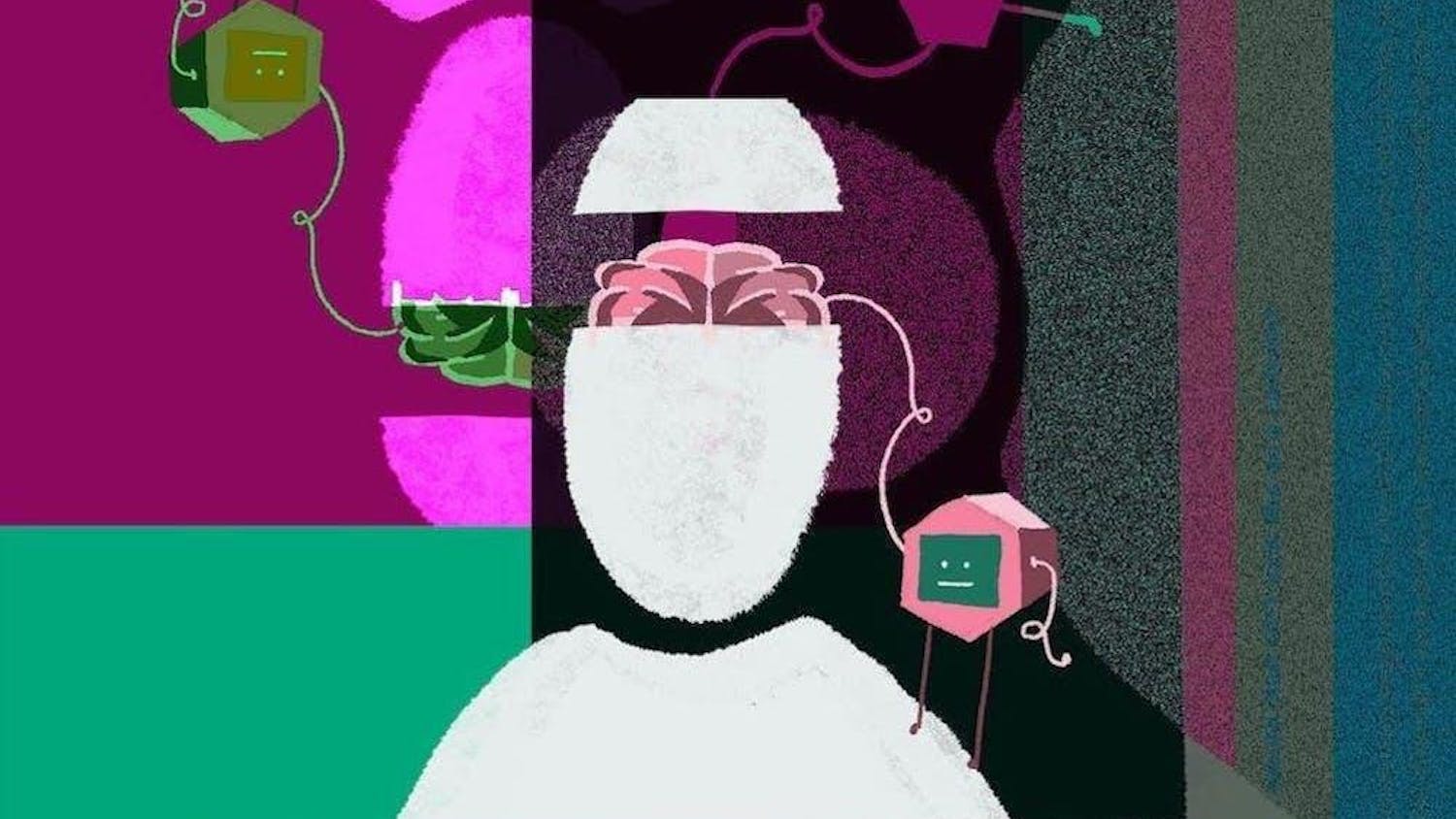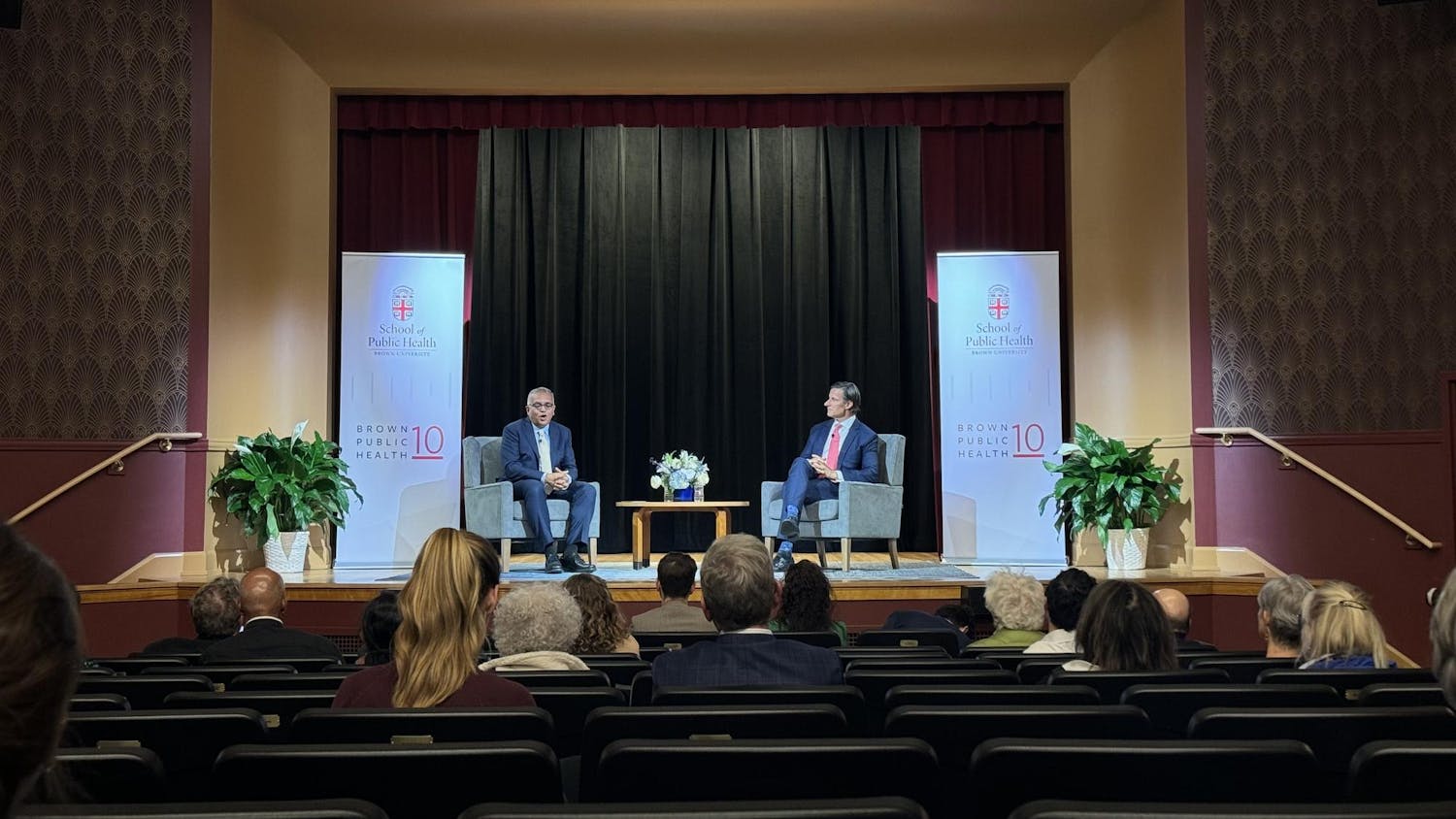Correction appended.
Sixteen first-years watched with excitement as their screens loaded the sequence of 59,625 nucleic acids that comprise the DNA of "Job42," the virus a student in their class had discovered, isolated and named during the fall semester.
"Each of them codes for something," said Jordan Rego, a student in the "Phage Hunters" class at Providence College, referring to the letters on his screen. "It's pretty amazing. I honestly can't wait to start" analyzing the DNA, he said.
Rego and his classmates are the first group of Providence College students to take Phage Hunters, a new introductory biology course that is entirely hands-on.
The course is part of a national program designed by the Howard Hughes Medical Institute, and this year both Providence College and Brown joined the fourth cohort of schools to offer the class, taught at forty schools nationwide.
Over the course of the first semester, the students each found and isolated their own unknown phage, a virus that infects bacteria. Then they selected one to be sequenced. Throughout the second semester, students will work together to find and label the phage's genes using a computer program that helps analyze DNA.
If they succeed in completely annotating the DNA, the class will be able to submit their work to an online database of known phages, allowing their discovery to be accessed and used by everyone in the scientific community.
"It's not like you're replicating what someone has done fifty years ago," said David Targan, Brown's associate dean of the college for science education. "You're doing something that is contributing to new knowledge."
The laborious hunt
First, students got their hands dirty, digging up soil samples to analyze in the lab, in hopes of finding their own phages.
"They think there are around 10 to the 31st bacteriophages in the world, so the probability of you finding a new phage is much, much larger than finding one that has been discovered," said Tina Voelcker '15.
Though the odds were in the students' favor, isolating the viruses was a long — and at times, frustrating — process. Alex Hadik '15 said it was challenging to determine whether his virus was one phage or a combination of several. To do this, he had to plate different strands of the virus and watch how it developed over six- or eight-hour increments, keeping track of his data meticulously.
The trying process ultimately motivated him to name his phage "Dante," reflecting "the layers of hell it put me through isolating it," he wrote in a follow-up email to The Herald.
Ultimately, Hadik succeeded in isolating his virus and was able to enter it in the class' "Phage Olympics."
"His electrophoresis gel was beautiful," Voelcker said, referring to one of the steps the students took to analyze the basic genetic structure of their phages. She explained how his sample had an optimal concentration of DNA, and how its genome was most likely very long.
"Dante" proved victorious in the Phage Olympics, and now students are going to analyze and annotate the 59,652 base pairs of its genome.
A similar story
The frustration Hadik described was not unique to Brown students. Their Providence College counterparts also suffered from sample contamination.
"We had so much trouble," said Kathleen Cornely, a professor of chemistry at Providence College, who co-teaches the course with Nic Austriaco, a professor of biology.
She said the class had to race to meet their deadline for attaining purified DNA. The night before Thanksgiving vacation, she was giving an exam when the Phage Hunters students came and knocked on her door. Having finally succeeded in isolating phages, they were cheering, thrilled to show her their specimens. "I just laughed for about 10 minutes," she said.
Ultimately, their class decided to sequence two of the phages with the most DNA, the first being "Job42." It was named after its isolator, James O'Brien. Austriaco explained that O'Brien added the 42 in reference to the 42nd chapter of the book of Job, which, he said, is about redemption and "how God restores Job after all his trials and tribulations."
Viral enthusiasm
Despite these frustrations, student responses to the course have been overwhelmingly positive.
"It was so fantastic to be exposed to this world of actual research," Voelcker said.
Aisha Ferrazares '15, another student in the course, said she initially decided to enroll because she wanted to go to medical school and thought the class would give her good research experience. But after the "opportunity to do all this innovative science," Ferrazares thinks she may want to pursue scientific research and earn a PhD instead.
Voelcker, Ferrazares and Hadik are hoping to pursue research internships this summer. "My work here will really help me get into a program," Hadik said. His creativity and problem-solving skills have grown immensely through overcoming some of the challenges he faced, he said.
The course is unique because it gives students the opportunity to join "what is essentially an experimental laboratory in (their) first semester," said Peter Shank, a professor of medical science who teaches the course alongside three other professors.
He said students often struggle to find research positions because most professors and lab directors are only interested in students with research experience — a catch-22, pa
rticularly for first-years and sophomores. "If you say you isolated this phage and did restriction mapping, that's a whole different set of skills," Shank said.
Excitement about Phage Hunters is not limited to students — faculty enjoy it too. "I'm having a blast," Shank said.
Everyone involved in the course both at Brown and at Providence College said one of the best parts has been the close-knit feeling that has arisen within the classes. "We became a really big family," Rego said.
A contagious course
Neither Providence College nor Brown designed the Phage Hunters course — the program was initiated by the Science Education Alliance branch of HHMI.
Lucia Barker, SEA's program officer, said the Phage Hunters initiative was created six years ago, an expansion of a course designed by Graham Hatfull, a professor of biotechnology at the University of Pittsburgh.
This is the first time HHMI has provided a curriculum and educational resources directly to professors, Barker said. HHMI also trains professors and provides the materials and supplies to full member colleges, such as Brown.
This support "gives them the opportunity to focus exclusively on how to teach the course and to focus exclusively on the students and the science," Barker said. "The cherry on top of the ice cream sundae is that these were freshmen."
In selecting which schools to join the initiative, "the most important thing we were looking for was a dedication to transforming science education to be hands-on," Barker said.
Brown had already begun to transform its biology offerings before successfully applying to be a part of Phage Hunters, Targan said, citing the new biology lab course offerings for first-years.
Both Barker and Targan spoke of the importance of keeping students interested in science. One way to do that is to have more students involved in hands-on classes.
‘The best way people learn'
HHMI has not yet decided if it will accept new schools to join the Phage Hunters program. "The idea of SEA is that it would be a series of different initiatives," Barker said. "We do know that SEA is planning on being involved in innovative science education programming for a long time."
Because Brown is a member school of the Phage Hunters program, HHMI will continue to provide the supplies for the course for two more years. After that, Targan said the course could potentially be absorbed into the biology program, if the three years prove enough to establish a "campus-based understanding" of how to run the course.
Given the success of the class, Targan said such hands-on experiences would make sense in many different departments, naming archaeology, history and anthropology as three disciplines where he could envision such engaging courses.
"Having that much more visceral experience using all the senses — it's impossible not to be engaged in it, whereas it's easy to zone out in a lecture," Targan said. "There's just a lot of evidence to show that that's the best way people learn and the best way to keep people interested."
An earlier version of this article incorrectly stated that the Phage Hunters initiative was started six years ago. In fact, it began four years ago, in 2008. The Herald regrets the error.




